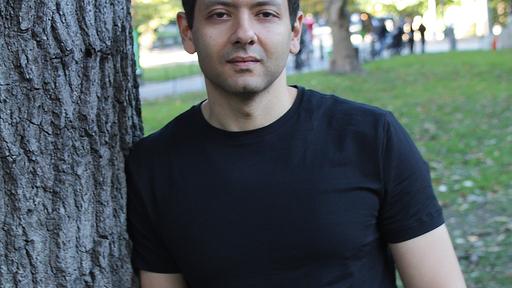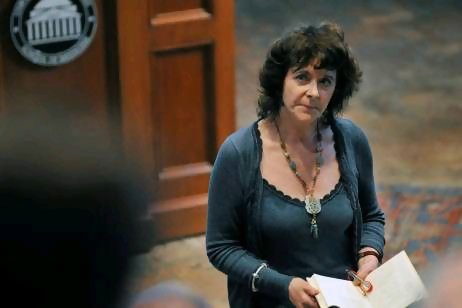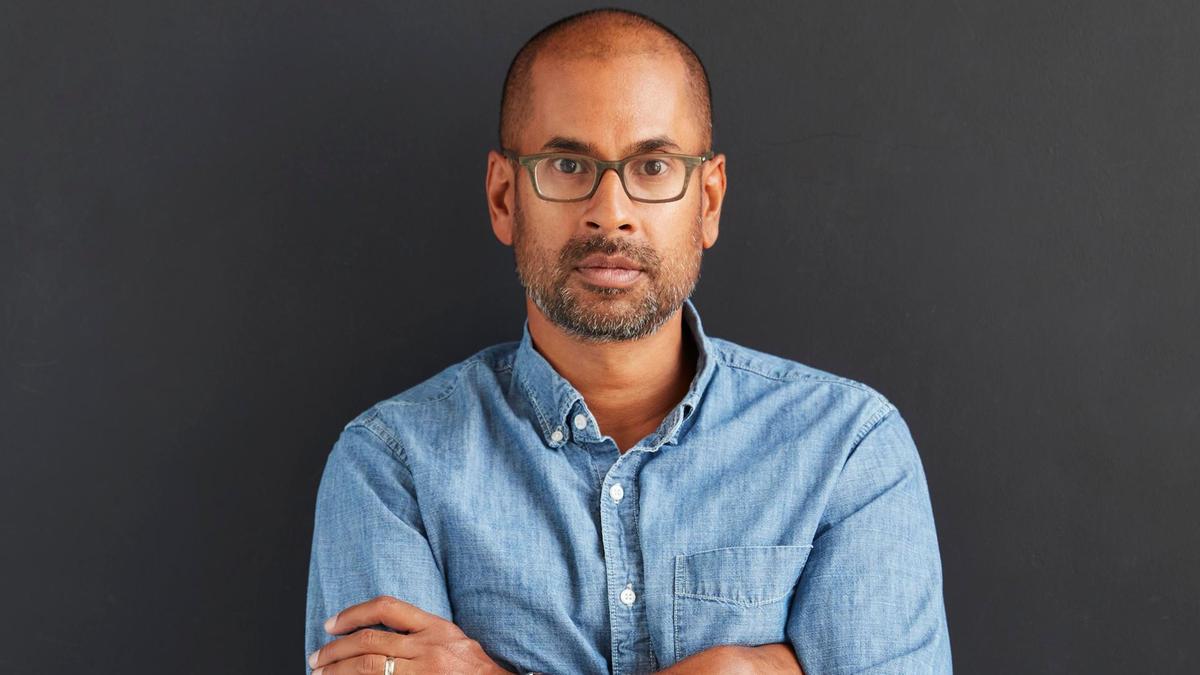Rising sea levels have swept away the southern coast of the United States. South Carolina is surrounded by a wall to prevent a virus from spreading. It is 2075 and the country is in the throes of a second civil war, ignited when southern states refused to accede to a law banning fossil fuels.
Author Omar El Akkad had so many plates to spin in the piecing together of his ambitious debut novel, he had to sit down and draw a map of the new US to refer to. This was, however, not the best idea for a journalist who is used to providing video content for his newspaper.
“I sketched out what the country would look like and the settings of the book, and then I pasted this giant wall map of the US to my office wall with Post-it notes on it,” he says. “I totally forgot that I had it behind me as I was doing a video piece, with this massive note on it saying ‘area of plague’. It was not a good look.”
It was, however, intriguing. El Akkad was born in Egypt, and grew up in Qatar and Canada. He now calls Portland, in Oregon, home, and has covered a wide range of stories – from Afghanistan to the Arab Spring and Guantanamo Bay – during his journalism career.
These experiences led him to consider the possibility of the turmoil caused by the wars of the 21st century on the US.
“I wanted to see how America would cope with it,” he says. And so American War was born. It tracks the life of a child from Louisiana who grows up in a shipping container in the midst of he civil war.
His vivid protagonist, Sarat Chestnut, comes of age in refugee camps and becomes a war hero, freedom fighter and, eventually, shockingly vengeful.
Part Hunger Games, part The Road, it is fully convincing. Just don’t call it futuristic.
“People are already calling it a speculative dystopia, but I really had no interest in writing about the future,” he says. “What I set out to do was write a story about the universal nature of revenge and the extent to which any of us subjected to damage can become damaging ourselves.
“There’s a line in the book about the universal slogan of war: ‘If it had been you, you’d have done no different’. If the book functions as a warning, it is to say to people that America is not immune to the kind of suffering that it thinks happens in exotic wars far away.”
It also has a fascinating subplot in that the dominant global power, which has a vested interest in keeping America weak and divided, is a pan-Arab “Bouazizi Empire”. After the fifth Arab Spring, the whole of North Africa and the Middle East has realigned into a single, peaceful and prosperous union.
“It is a hopelessly optimistic view of the part of the world I came from,” says El Akkad with a laugh. “It is a rewrite of the formation of the original US, so it didn’t seem so far-fetched to apply it to the Middle East.
“Actually, I think southern Americans and Arabs have quite a lot in common – very hospitable, but deeply tied to culture and traditions. “I mean, I’ve only been tear-gassed twice in my life: once when I was in Cairo covering the Arab Spring and once when I was in Ferguson, Missouri, covering the Black Lives Matter movement. So that was symmetry I could tap into pretty readily.”
It is interesting that El Akkad thinks the Bouazizi Empire is optimistic as, on the whole, American War is not particularly hopeful. He goes so far as to suggest it is actually not all that plausible either. The 60-metre sea-level rises are, he admits, “faintly ludicrous”, and holes can certainly be picked in the plot. But that is not the point.
The reason people are already calling American War prescient or timely is most of the events in the book have already happened, just to different people.
“Like a lot of writers, I’m an outright thief,” he jokes. “There’s a filthy wastewater creek in the refugee camp in American War, which is based on a horrible ditch I saw at the Nato base in Kandahar. “Everything that happens to Sarat in the detention centre she ends up in is pretty closely tied to Guantanamo Bay.”
In the end, the central tragedy of the book is not what happens to America, but the stubbornly defiant Sarat. It is a debut novel with some bumpy sections but, on the whole, it is El Akkad’s impressively written protagonist whose presence lingers.
“It is ultimately Sarat’s story,” he agrees.“I don’t want people to sympathise with her, or even necessarily take her side. In my mind she is a fundamentally evil person in the end. But I wanted to get at the way in which that had happened, which is complex and nuanced.”
Which is a bit like America itself – both in 2017 and 2075.


